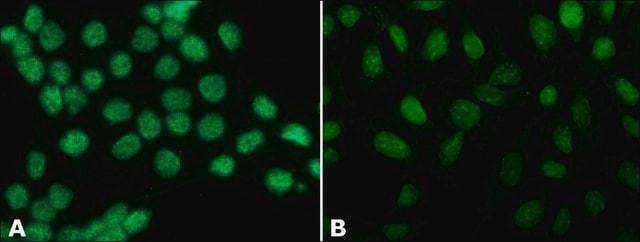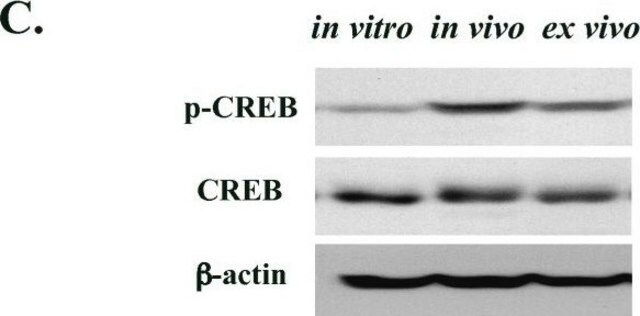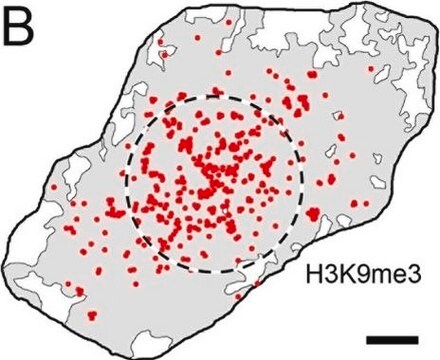07-690
Anti-Histone H3 Antibody, CT, pan
serum, Upstate®
Synonym(s):
H3, Histone H3, H3 histone family, member T, histone 3, H3, histone cluster 3, H3
About This Item
Recommended Products
biological source
rabbit
Quality Level
antibody form
serum
antibody product type
primary antibodies
clone
polyclonal
species reactivity
human, mouse, yeast, rat, chicken, Saccharomyces cerevisiae
manufacturer/tradename
Upstate®
technique(s)
ChIP: suitable
western blot: suitable
NCBI accession no.
UniProt accession no.
shipped in
dry ice
target post-translational modification
unmodified
Gene Information
human ... H3C1(8350)
mouse ... H3C1(360198)
rat ... H3C1(679994)
General description
Specificity
Immunogen
Application
This antibody has been reported by an independent laboratory to immunoprecipitate chromatin from yeast.
Quality
Western Blot Analysis:
1:25,000-1:50,000 dilution of this lot detected Histone H3 in a modification independent manner in acid extracted proteins from untreated, sodium butyrate or colcemid treated HeLa cells.
Target description
Physical form
Other Notes
Legal Information
Not finding the right product?
Try our Product Selector Tool.
Storage Class Code
10 - Combustible liquids
WGK
WGK 1
Certificates of Analysis (COA)
Search for Certificates of Analysis (COA) by entering the products Lot/Batch Number. Lot and Batch Numbers can be found on a product’s label following the words ‘Lot’ or ‘Batch’.
Already Own This Product?
Find documentation for the products that you have recently purchased in the Document Library.
Our team of scientists has experience in all areas of research including Life Science, Material Science, Chemical Synthesis, Chromatography, Analytical and many others.
Contact Technical Service








